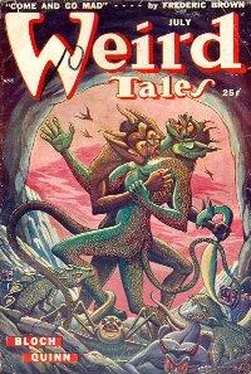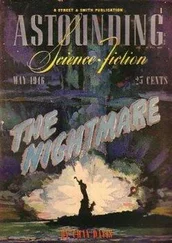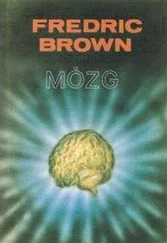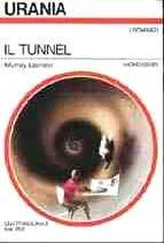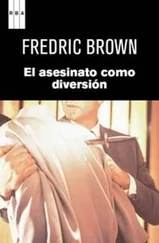“Yes. And you, because you knew a little too much, must go mad so that you will know nothing. Knowing the truth will drive you mad.”
“No!”
The instrument smiled.
The room, the cube of light, dimmed; it seemed to tilt. Still standing, he was going over backward, his position becoming horizontal instead of vertical.
His weight was on his back and under him was the soft-hard smoothness of his bunk, the roughness of a gray sheet blanket. And he could move; he sat up.
He had been dreaming? Had he really been outside the asylum? He held up his hands, touched one to the other, and they were wet with something sticky. So was the front of his shirt and the thighs and knees of his trousers.
And his shoes were on.
The blood was there from climbing the wall. And now the analgesia was leaving, and pain was beginning to come into his hands, his chest, his stomach and his legs. Sharp biting pain.
He said aloud. “ I am not mad. I am not mad.” Was he screaming it?
A voice said, “No. Not yet.” Was it the voice that had been here in the room before? Or was it the voice of the man who had stood in the lighted room? Or had both been the same voice?
It said, “Ask, ‘What is man?’ ”
Mechanically, he asked it.
“Man is a blind alley in evolution, who came too late too compete, who has always been controlled and played with by The Brightly Shining, which was old and wise before man walked erect.
“Man is a parasite upon a planet populated before he came, populated by a Being that is one and many, a billion cells but a single mind, a single intelligence, a single will—as is true of every other populated planet in the universe.
“Man is a joke, a clown, a parasite. He is nothing; he will be less.”
“ Come and go mad. ”
He was getting out of bed again; he was walking. Through the doorway of the cubicle, along the ward. To the door that led to the corridor; a thin crack of light showed under it. But this time his hand did not reach out for the knob. Instead he stood there facing the closed door, and it began to glow; slowly it became light and visible.
As though from somewhere an invisible spotlight played upon it, the door became a visible rectangle in the surrounding blackness; as brightly visible as the crack under it.
The voice said, “You see before you a cell of your ruler, a cell unintelligent in itself, yet a tiny part of a unit which is intelligent, one of a million units which make up the intelligence which rules the earth—and you. And which earth-wide intelligence is one of a million intelligences which rule the universe.”
“The door? I don’t—”
The voice spoke no more; it had withdrawn, but somehow inside his mind was the echo of silent laughter.
He leaned closer and saw what he was meant to see. An ant was crawling up the door.
His eyes followed it, and numbing horror crawled apace, up his spine. A hundred things that had been told and shown him suddenly fitted into a pattern, a pattern of sheer horror. The black, the white, the red; the black ants, the white ants, the red ants; the players with men, separate lobes of a single group brain, the intelligence that was one. Man an accident, a parasite, a pawn; a million planets in the universe inhabited each by an insect race that was a single intelligence for the planet—and all the intelligences together were the single cosmic intelligence that was— God!
The one-syllable word wouldn’t come.
He went mad, instead.
He beat upon the now-dark door with his bloody hands, with his knees, his face, with himself, although already he had forgotten why, had forgotten what he wanted to crush.
He was raving mad—dementia praecox, not paranoia—when they released his body by putting it into a strait jacket, released it from frenzy to quietude.
He was quietly mad—paranoia, not dementia praecox—when they released him as sane eleven months later.
Paranoia, you see, is a peculiar affliction; it has no physical symptoms, it is merely the presence of a fixed delusion. A series of metrazol shocks had cleared up the dementia praecox and left only the fixed delusion that he was George Vine, a reporter.
The asylum authorities thought he was, too, so the delusion was not recognized as such and they released him and gave him a certificate to prove he was sane.
He married Clare; he still works at the Blade— for a man named Candler. He still plays chess with his cousin, Charlie Doerr. He still sees—for periodic checkups—both Dr. Irving and Dr. Randolph.
Which of them smiles inwardly? What good would it do you to know? Yes it was, is, one of those four.
It doesn’t matter. Don’t you understand? Nothing matters!
